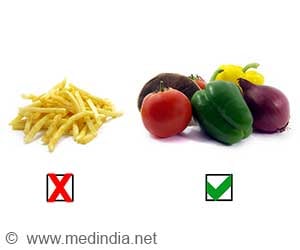Social media can be a good factor for women suffering from mental illnesses.
- Instagram can aid in improving mental health
- It can have a calming effect on the mind and help people with mental health issues
- Excessive use of social media can have deteriorating effects on the body
The extent to which Instagram might cause harm is still being contested, but a Concordia researcher says in a recent report that regular usage of the platform is not always a bad thing.
It can also help women with mental health difficulties like eating disorders and anxiety (1✔ ✔Trusted Source
“A series of little high fivesâ€: mental health and digital habituation in women’s Instagram practices
Go to source).
TOP INSIGHT
In public discourse, headlines about Instagram's negative impact on women's mental health abound, but recent research says otherwise and highlights how women's presence on Instagram has helped them battle mental health issues.
When Scrolling Through Social Media, Keep Your Mental Health in Mind
Concordia Ph.D. candidate and 2021 Public Scholar Fanny Gravel-Patry undertakes an in-depth investigation of women's use of Instagram in their daily lives in an article published in the journal Feminist Media Studies.The study looks at the social media habits of three Quebec women dealing with mental illnesses who have included Instagram use in their daily routines and discovered that it had a favorable impact on their mental health. She observes that, depending on their personalities, users utilize the app in some ways, such as generating and locating mental-health resources, sharing their healing experiences, or recording screen photos of inspirational articles. According to Gravel-Patry, Instagram has a calming impact on these women, which helps them cope with their restricted access to mental health facilities.
"I was interested in why they are turning to the platform, what kind of content they consume and create, and what they find there that they can’t find elsewhere," Gravel-Patry notes.
Restoring Digital Habits
She believes there are compelling reasons to focus on women's digital habits.First, whether it is exercising, going to therapy, crafting, writing in a diary, or spending constructive time online, adopting regular habits is frequently the first move people living with mental illness make to improve their mental health.
Second, she was curious to observe how the women she interviewed were able to break free from the pattern of recurrent images depicting women as hysterical or prone to insanity to establish new, more positive discourses.
Third, she wanted to test if her social media behaviors might result in a long-term healing transformation.
"I was trying to put all of this together to see how social media fits here as something that assists in the recovery and not as something that hinders it," she says. "I also wanted to consider it, not necessarily as the best tool, but because it is a tool that is available to them."
Gravel-Patry concentrates her research on three Quebec graduate students. One has an eating disorder; another has generalized anxiety and an eating disorder, and the third has anxiety, body image difficulties, and traumas from her childhood experiences with racism.
They all use Instagram regularly to cope with their mental illnesses, but in different ways. One chose to share her recovery journey through her account, whilst the other two preferred a more anonymous strategy, such as capturing screenshots of encouraging memes or following accounts with content that reduces anxiety.
Platform Capitalism meets Mental Health
She observes that Instagram is not necessarily useful. As a platform-capitalist corporation, it carries some of the blame for contributing to an economic system that benefits women and girls, who are negatively harmed by it. This is especially important at a time when mental health care funding is being directed towards self-care efforts, such as the development of digital mental-health tools."Because there are limited resources, people do not have the choice but to take care of their mental health and go on apps like Instagram," she says. "But these are apps that ultimately encourage the structure of individualized commodification."
Beyond the structure of individualized commodification, there is a downside to this social media scrolling as well.
It's no secret that excessive screen time can harm our brains and bodies. This is primarily due to the blue light generated by electronic device screens, such as your phone. Blue light, according to a 2014 study conducted by the Howard Hughes Medical Institute and the University of Texas Southwestern Medical Center, promotes sleep insufficiency due to the light's capacity to suppress melatonin, disrupting a person's sleeping and waking cycles. While this causes people to sleep less, it can also affect how your brain focuses.
What Keeps us Scrolling?
What is one thing that all social media sites have in common?It is the feature of endless scrolling; regardless of its name, which changes from one social media app to another, this is a built-in component of the feed. This news feed serves as the foundation for interaction and engagement, as well as the primary means by which users are exposed to content. The fundamental idea behind this feature is that users would receive an infinite stream of content based on whom they follow or interact with. Various social media programs evaluate your prior activity to determine your interests.
This is how their algorithms function and provide you with stuff relevant to your interests, and when these algorithms show users content relevant to their interests, they give targeted audiences to various company accounts (that are referred to as business profiles in some social media apps). This produces an unending stream of information and allows us to scroll indefinitely. This mindless scrolling consumes a significant amount of our important time and contributes to anxiety, sadness, and other mental health difficulties. This is a negative aspect of the internet: we spend a lot of time staring at our displays while knowing the negative effects of excessive screen time.
According to neuropsychology specialist Susan Weinschenk, the reason we can't stop scrolling on our app feeds could be a dopamine reward cycle. Dopamine is vital in several activities of the brain, one of which is "to generate desiring behavior." When scrolling through a social networking app, the more you go through, the more you want to scroll for more information, which is due to dopamine, which makes you curious and arouses you to seek more information. Thus, this never-ending scrolling could be a trap of the dopamine loop, which makes you want more information.
Instagram Scrolling: The Verdict
While having a limited amount of time can be beneficial to our mental health, having too much time can be detrimental.Social media platforms are designed in such a way that users are trapped in an unending scrolling loop, which may lead to internet addiction. Remember that internet addiction can harm your mental health and overall well-being. It's time to think differently and implement tactics that will help you kick your mindless scrolling habit.
Reference:
- “A series of little high fives”: mental health and digital habituation in women’s Instagram practices - (https://www.tandfonline.com/doi/full/10.1080/14680777.2022.2149603)
Source-Medindia
 MEDINDIA
MEDINDIA





 Email
Email





